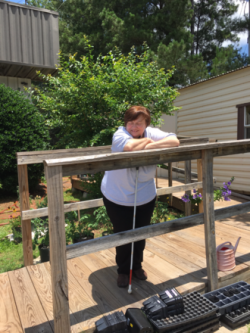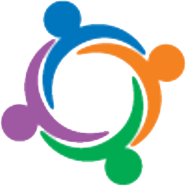Spread the Word about 211
Below excerpted from: https://www.fcc.gov/consumers/guides/dial-211-essential-community-services
Dial 211 for Essential Community Services
How 211 Works
211 typically works a bit like 911. Calls and texts to 211 are routed by the local telephone company to a local or regional calling center. The 211 center’s referral specialists receive requests from callers, access databases of resources available from private and public health and human service agencies, match callers’ needs to available resources, and link or refer callers directly to an agency or organization that can help.
Types of Referrals Offered by 211
- Basic Human Needs Resources – including food and clothing banks, shelters, rent assistance, and utility assistance.
- Physical and Mental Health Resources – including health insurance programs, Medicaid and Medicare, maternal health resources, health insurance programs for children, medical information lines, crisis intervention services, support groups, counseling, and drug and alcohol intervention and rehabilitation.
- Work Support – including financial assistance, job training, transportation assistance, and education programs.
- Access to Services in Non-English Languages – including language translation and interpretation services to help non-English-speaking people find public resources (foreign language services vary by location).
- Support for Older Americans and Persons with Disabilities – including adult day care, community meals, respite care, home health care, transportation, and homemaker services.
- Children, Youth and Family Support – including childcare, after-school programs, educational programs for low-income families, family resource centers, summer camps and recreation programs, mentoring, tutoring, and protective services.
- Suicide Prevention – referral to suicide prevention help organizations. Callers can also dial 988, the three-digit, nationwide phone number to connect directly to the 988 Suicide and Crisis Lifeline.
Dial 211
Below excerpted from: https://www.unitedwaynega.org/impact/211-2/
United Way of Northeast Georgia’s 211 connects families with the community-based resources they need to thrive – resources that can put food on tables, sharpen and edit resumes, keep lights on or even provide clothes after a house fire so families can keep moving forward.
Those who reach out to 211 are connected to trained, bilingual Community Connection Specialists who provide information on services and referrals to programs aligned with the individual’s specific needs.
More than 200 programs, faith-based institutions and other organizations are listed in the 211 database. 80% of callers were connected to a resource able to meet their need last year.
United Way’s 211 is free, confidential and available 365 days a year in 140 different languages serving Banks, Barrow, Clarke, Elbert, Franklin, Greene, Hart, Jackson, Madison, Morgan, Newton, Oconee, Oglethorpe, Stephens, and Walton County.
Our Services Based in Athens, GA
Based in Athens, GA, we at Multiplechoices™ Center for Independent Living (MCCIL) proudly serve the following 10 northeast Georgia counties: Barrow, Clarke, Elbert, Greene, Jackson, Madison, Morgan, Oconee, Oglethorpe, and Walton. Our home office is in Athens (Clarke County), Georgia.
As does each Center for Independent Living (CIL) nationwide (www.ilru.org), we offer the following five core services to people living with a disability (or disabilities).
Peer Support
Through Peer Support, Multiplechoices™ provides an invaluable opportunity for people living with disabilities to address, express, and/or explore their individual independent living needs, goals, hopes, and dreams. We can assist in designing a doable framework to fulfil such quests.
Many of the Center for Independent Living (CIL) peer support counselors themselves experience living with one or more disabilities, which can complement the peer support dynamics. Note that we do not offer licensed financial, medical, legal, or other such professional advice.
But we do help to unravel and address the countless complexities of living with disabilities, such as isolation, anxiety, and depression, as well as housing, employment, and mobility issues, etc.
Information and Referral
Looking for information about your rights or opportunities? Need a referral regarding housing, education, transportation, community, or other resources? Multiplechoices™ provides Information and Referrals to individuals living with disabilities, and to all of those who inquire. Please ask.
Independent Living Skills Training
Individuals do not choose to live with a disability. And each disability presents singular challenges for each impacted individual. But individuals do have the choice to persevere, to overcome limitations, and to lead fulfilling lives. Multiplechoices™ provides Independent Living Skills Training to assist your life-long growth as an individual.
Some examples of Independent Living Skills Training include:
- Braille instruction
- Identifying and overcoming everyday obstacles with confidence
- Computer literacy that can enhance one’s personal life, one’s educational and/or employment opportunities, one’s navigation in medical and other essential realms of life
- Assistive technologies specifically designed to enhance navigation in this world – in the home, in school, at work, at the grocery, etc., utilizing an array of devices and technologies from the simple, such as a raised dot marker on a keyboard for a visually impaired person, to the more complex, such as iPads and smartphones and voice recognition software
Essentially, the sky is the limit regarding assistive technologies.
Oh. And interestingly, assistive technologies, such as curb cuts for wheelchair users and talking books for the blind and print disabled, often become amenities and tools utilized in the mainstream by folks who are not living with a disability.
Systems and Individual Advocacy
Systems Advocacy
Rules and regulations of programs, laws, and policies sometimes do impose barriers to independent living. Multiplechoices™ advocates for systems changes to reduce and ideally to eliminate independent living barriers. Through participation in systems advocacy, folks learn best practices in how to articulate and describe concerns/barriers in need of change, and how to navigate legislative and organizational processes to promote change.
Individual Advocacy
Individual advocacy is self-advocacy. In essence, self-advocacy is the ability to express one’s needs such that one is heard and one’s needs are met. Self-advocacy can be learned at any age and in myriad realms such as at work, at home, at school, and/or regarding housing, transportation, etc. Self-advocacy boosts confidence, and can contribute to systems changes in public policy.
Through advocacy, we imagine and work toward a world in which individuals living with a disability have equal access to all aspects of society necessary to live a free and happy life.
Community and Youth Transition
Transitioning from a nursing home back into the community can be a daunting endeavor wrought with more questions than answers. We can assist you along that path so that you feel confident and comfortable with the change; so that you receive the help that you need to initiate and maintain the independence that you desire.
Completing high school, pursuing post-secondary education, becoming an independent adult, entering the workforce, are pivotal times in a person’s life. We can assist with those passages by providing resources and skills training that prepare you for successful navigation of such transitions. Skills training encompasses that which you need, from résumé development and mock employment interviews, to financial literacy.
In addition to our five core services:
As funding permits, we can also facilitate transportation, home modification, micro-enterprise development.
Transportation
Transportation is one of the paramount needs of individuals living with disabilities. If you need transportation assistance to/from our facility or help coordinating appropriate transportation to/from other destinations, we will do all that we can to assist.
Home Modification
If you need accessibility improvements in your home, call us about how we might assist. We can be instrumental in the installation of wheelchair ramps, handrails, grab bars, and other modifications that make living independently more accommodating.
Micro-enterprise
Living with a disability need not thwart your creative spirit nor impede your entrepreneurial vision. If you have an idea for a micro-enterprise, see if we can help you to maneuver in those directions to fulfil your dream.
~~~~~~~~~~~~~~~~~~~~~~~~~~~~~~~~~~~~~~~~
Connect with Multiplechoices™ Center for Independent Living (MCCIL) to explore disability resources relative to your independent living hopes, dreams, goals.
We serve the following ten counties in northeast Georgia: Barrow, Clarke, Elbert, Greene, Jackson, Madison, Monroe, Oconee, Oglethorpe, and Walton. Our home office is in Athens (Clarke County), Georgia.



